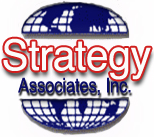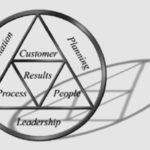15 Healthcare Leadership Development Areas
- Explore current issues that surround organizational changes, learn systematic methods for identifying target constituencies, and apply approaches to maximize positive acceptance and minimize resistance
- Create a culture of operational excellence in a health care organization
- Recognize situations of vulnerability, including personal or organizational legal liability in the delivery of quality medical care, and gain a legal perspective for making management decisions
- Utilize the necessary tools to gain a firm grasp of your organization’s financial structure to effectively bring your vision to reality
- Use interest-based negotiation, multidimensional problem solving, meta leadership, and other effective techniques to build collaboration and manage conflicts across complex health care systems
- Leverage the skills and processes necessary to transform and lead groups into productive, high-performing teams
- Grow your understanding of the management control activities that provide the formula for financial success
- Develop the crucial qualities, actions, and approaches necessary to be a successful leader
- Understand new emerging areas in patient safety and identify key new areas of focus for your healthcare institution
- Discuss change management in the context of a major initiative to focus on quality within an organization
- Discover your own leadership and motivational style and how this knowledge can help maximize your productivity and impact
- Gain insight into skills and attributes needed to lead and the value of a diversity of views and backgrounds
- Understand design thinking and how it can be used as a process for stimulating innovation in your organization
- Become familiar with Accountable Care Organizations including their major challenges, how they will affect care and what health care executives need to know about their current and future states
- Explore the major reasons for the high rate of failure within major IT initiatives and discuss pragmatic leadership approaches for ensuring a success
Practical Learning Format
The primary teaching method for this program consists of interactive learning with small group discussions, case studies, and in-class exercises.
8-Hour Program Description
Health Care Management: Legal and Ethical Responsibilities for Reducing and Addressing Error
This session will provide a practical legal perspective for management decisions. Participants will be sensitized to recognize situations of vulnerability, of personal or organizational legal liability in the delivery of quality medical care, and the supervision of staff personnel and residents in training. Participants will be exposed to actual situations drawn from court cases and will critically review court opinions to help participants extract practical legal principles applicable to health care management. {60 min}
Innovative Problem Solving: Breaking Fixedness
As health care leaders, you are confronting disruptive change that requires new ways of thinking and problem solving. During this session, we will discuss mindsets essential for successful innovation and introduce you to a framework for innovation. We will unearth and explore biases that obstruct our ability to be innovative, and through hands-on exercises, practice techniques to overcome these cognitive obstacles. {60 min}
Leadership and Motivation
Successful leaders need to understand their own leadership and motivational styles to know how to maximize their productivity and impact. But they can’t be truly effective until they understand, direct, and improve the styles of the people they are working with. This results driven, interactive session will use the Strength Deployment Inventory to help participants learn how to form, focus, and modify their message and their approach when interacting with others to optimize outcome. {45 min}
Leading High Performance Teams
Building, diagnosing, and evaluating teams requires a knowledge of the key issues that lead either to success or failure. This session will present an action-oriented experiential exercise to heighten participant’s practical awareness of the skills and processes needed to transform and lead groups into productive high-performing workgroups/teams. {45 min}
Executing a Patient Safety, Quality and Patient Satisfaction Strategy
This session will focus on lessons learned in developing and executing a strategy to improve safety, quality and patient satisfaction in a typical health care organization using an integrated case study. {60 min}
Improving Organizational Performance
What are the barriers to improving organizational performance? How have organizations been successful in improving performance? Lessons learned from patient flow, process improvement, employee engagement, use of technology will be discussed. {45 min}
Succeeding as Tomorrow’s Leader
This session will focus on the qualities, actions, and approaches needed to harness organizational energy, enthusiasm, and productivity to meet bottom line, financial, medical, employee, and patient demands. {45 min}
Accountable Care Organizations (ACOs): Challenges and Opportunities
This session will focus on Accountable Care Organizations (ACOs). It will help answer some basic as well as advanced questions, including: What is an ACO and what is the problem that it’s trying to address? Why are policy makers so excited about ACOs? How do ACOs differ from prior cost-containment and delivery reform initiatives? What are the major challenges involved in successfully launching ACOs? How will they affect care for everyone else? And finally, what do health care executives need to know about the current and future state of ACOs? {60 min}

